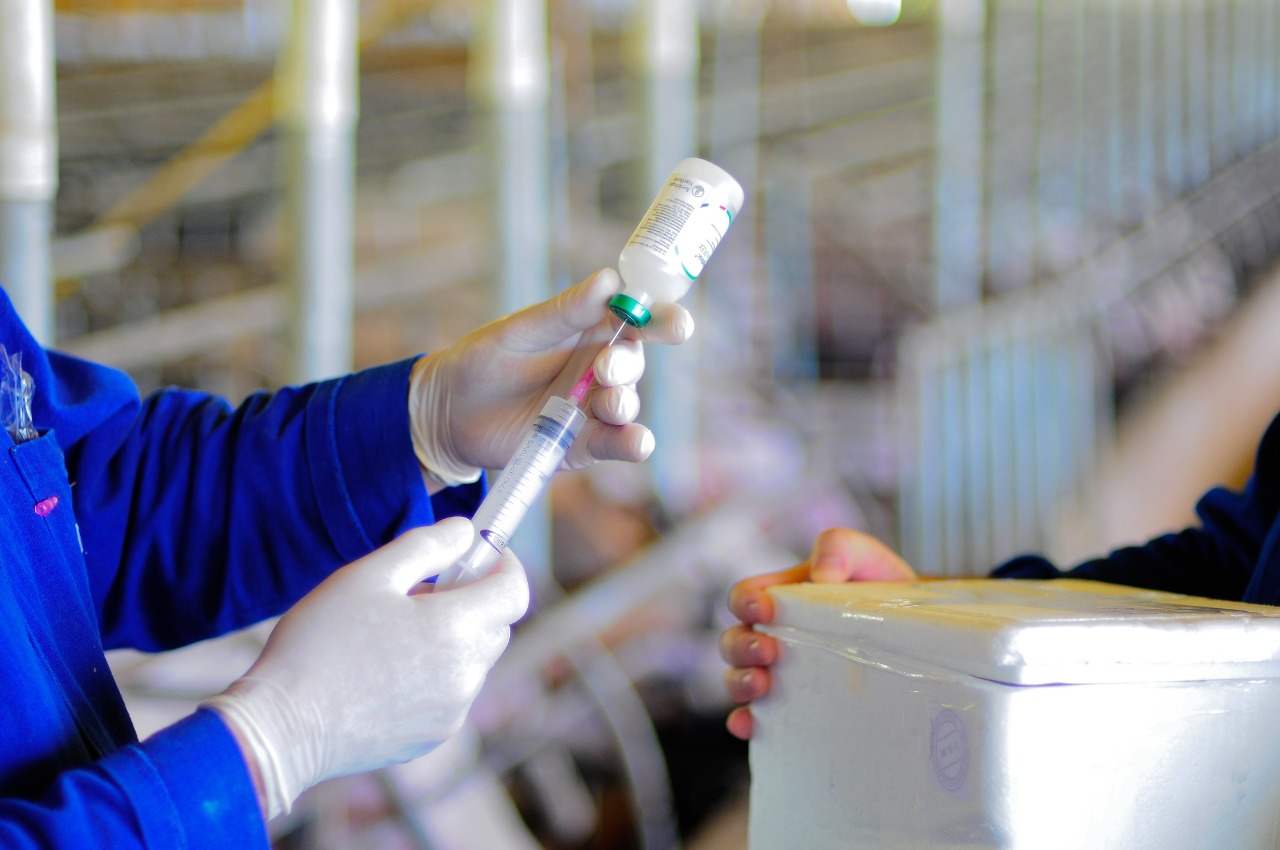Embrapa and American institution agree to research cooperation on swine flu
Embrapa and American institution agree to research cooperation on swine flu
Embrapa and the United States Agricultural Research Service's National Centers for Animal Health (NCAH/ARS), have just formalized a cooperation agreement to develop research aimed at the main challenges in the area of animal health. The two institutions will be involved in studies that will contribute to the diagnosis and the production of efficient vaccines against the Influenza A virus in swines, which is popularly known as swine flu. While the disease is known and considered to be endemic in swines in many countries, it concerns specialists in light of the occurrence of new variants that hinder control and diagnosis.
Embrapa Swine and Poultry (Concórdia, SC) has led projects in the area since 2005, and the collaboration with the ARS represents the chance to further knowledge that will facilitate the quantification of the gene and antigen evolution of the viruses that circulate in swines in Brazil and their relationship with the human Influenza viruses, with the aim of assessing the interspecies transmission risk and developing rational pig vaccination approaches.
The formalization of the cooperation agreement was negotiated by the Embrapa Labex USA coordinator Alexandre Varella and Embrapa Swine and Poultry's team . Research funds will be received and managed by the Arthur Bernardes Foundation (Funarbe), which has partnered with national and international institutions to support project submission and accountability. “Labex's intermediation, alongside the aid of Embrapa's legal department, was fundamental to expedite the processing of the agreement”, stated Rejane Schaefer, a researcher at Embrapa Swines and Poultry and leader of the project.
Viral transmission
Schaefer reports that influenza in swines causes significant economic losses in pig farming. “The virus provokes an acute respiratory infection, which is similar to the one that is observed in humans”, she says, underscoring that infected swines, can have reduced weight gain and require antimicrobial drugs to fight secondary bacterial infections. The researcher explains that influenza is a zoonosis and viral transmission between swines and humans is bidirectional, that is, not only can humans transmit the virus to swines, but swines can also transmit the virus to humans.
“That is why it is so important to assess the changes (mutations) that occur in isolated swine viruses to study the evolution of the viral diversity and identify viruses that have the potential to cause influenza pandemics in humans”, she asserts. For the research, swine viruses are isolated, then genetically sequenced, and followed by an antigenic characterization of the viruses in contrast with a panel of antibodies produced against the influenza virus in swines and humans. “We perform the viral genetic characterization (to analyse the gene sequences generated by last-generation sequencing) and antigenic characterization (for analysis by antigenic cartography)”, she said.
With regard to the benefits of the collaboration between the Brazilian and American research institutions, Rejane highlights the sharing of reagents generated by NCAH, a panel of serums against human and swine-origin influenza viruses, in order to perform cross-reactivity tests with influenza viruses isolated from swines in Brazil. “The data thus generated will be combined and shared to complete the antigenic map and incorporate Brazilian data into a global outlook of influenza viruses in swines”, she comments, recalling NCAH researchers' expertise in analyses of viral gene sequences and antigenic cartography.
Kátia Marsicano (MTb DF 3645)
Secretariat of Intelligence and Strategic Relations
Press inquiries
imprensa@embrapa.br
Phone number: +55 61 3448 1861
Mariana Medeiros (Translation - English)
General Secretariat
Further information on the topic
Citizen Attention Service (SAC)
www.embrapa.br/contact-us/sac/

